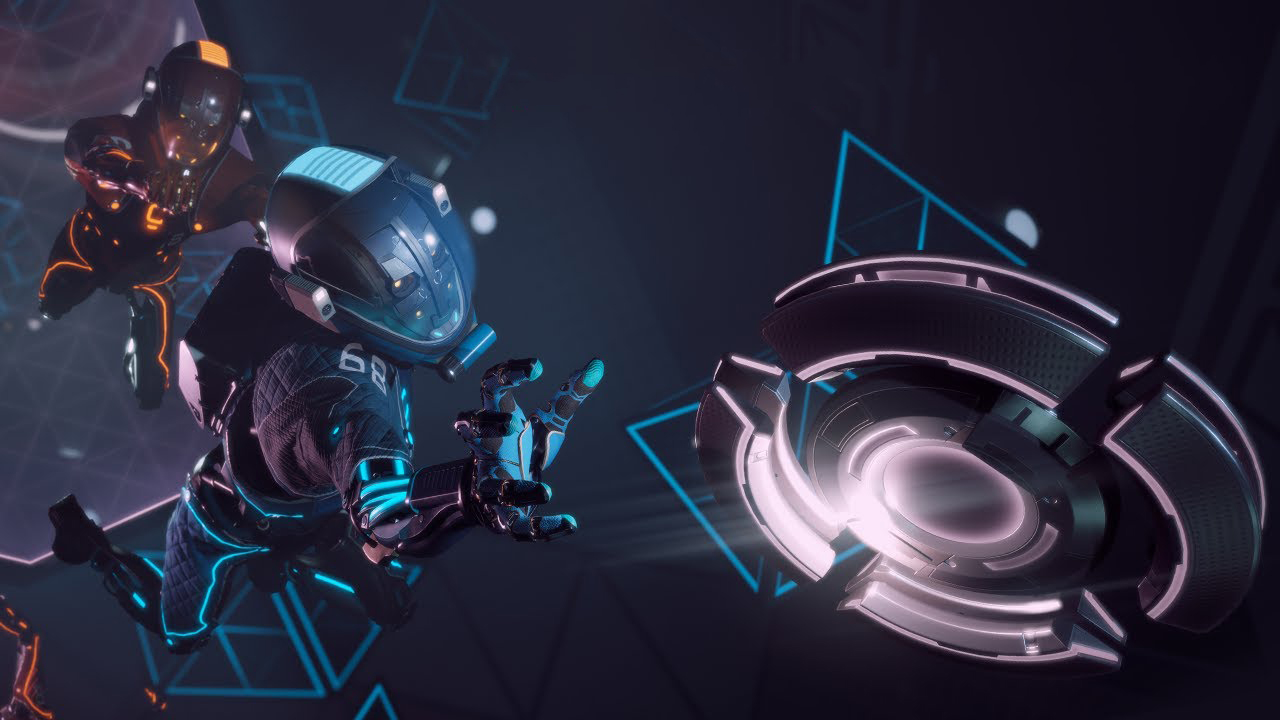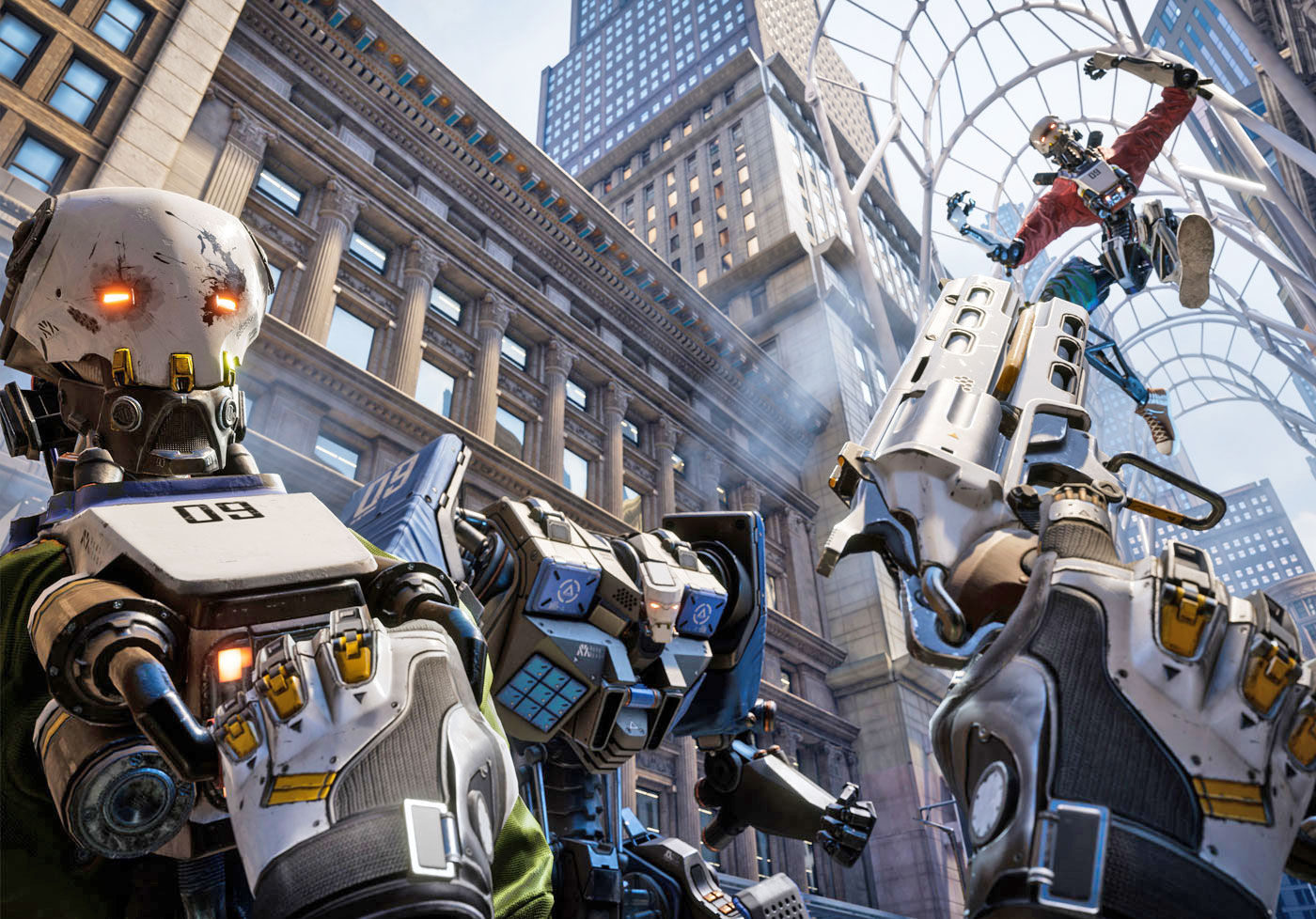Oculus explains why VR exclusives are 'the right way of doing things'
VP of content Jason Rubin offers a business perspective on why exclusives help hardware survive.

For the next six weeks, Oculus is knocking $200 off the price of the Oculus Rift headset, by far the lowest price we've seen yet for PC VR. I talked to Oculus' VP of content Jason Rubin about the price drop, who said "We're at that point where if you hand Rift to anybody, there's plenty for them to do, assuming that they're a gamer. Because of that, we're very encouraged to expand the user base… So we're going to push the hardware. And the way we push the hardware is by price."
The price drop is part of a "Summer of Rift" initiative that also includes the launch of free multiplayer game Echo Arena. Echo Arena the latest in a line of free games published by Oculus Studios, including Lucky's Tale and Robo Recall, that are exclusive to the Rift. Exclusivity has been a sore subject in the VR community ever since Oculus announced plans for its own store, and it was no surprise that shortly after launch, modders released a hack called Revive to make Rift-exclusive software playable on the HTC Vive. Oculus released an update that blocked the software, then rolled it back after an outcry, and that was that.
Now, a year later, Oculus co-founder Palmer Luckey (who recently left the company) is contributing $2000 to the CrossVR Patreon, makers of Revive. I asked Rubin what he thought of Luckey contributing to a project aimed at making Rift exclusives playable on other hardware, and if there's been any policy change at Oculus regarding Revive. What I got was a passionate answer about the importance of exclusives when launching new hardware and some not-so-subtle shade about Valve's approach with SteamVR. Here's his response in full.
"With regards to the more specific question about Revive and hacking, stuff like that, Oculus never really set out to block it. It kind of happened by accident. Since then, it has not happened by accident. I think we have a 100 percent record, since that moment, at which [CEO Brendan Iribe] said we would no longer do hardware checks, effectively, that we have not broken Revive.
"To a certain extent, I am a little at a loss, because Sony decided they wanted to get into the VR industry, and they said 'wow, we need to make software,' and they made software, and that software's exclusive. And that's awesome, because they've made some really interesting titles, I've seen some really brilliant things done, and I can say to my developers that I'm working with, 'wow, that was a great idea that Sony funded. We should take that, and something else, put them together and make a new mix, something that steps on the shoulders of giants and uses what they've done.'
"Likewise Google brought out a platform, and they said, we really need some software, so they went out and they funded a bunch of software, including, for example, Gunjack 2. We worked on Gunjack 1 with CCP. And that's great, because they come up with amazing stuff, and it eventually rolls off of exclusivity windows, and comes over to our platform, our stuff goes to their platform. It's all great, and we love it, and we understand it.
I applaud all those companies for doing what they're doing, because they make the job of bringing VR to the masses easier for me, and they make it better for consumers.
Jason Rubin
"When Microsoft comes out, I would imagine Microsoft will run the same playbook, because that's the playbook they run on Xbox. They will say, 'we need to fund VR content, we need to make interesting things so that people have a reason to use our hardware.' This all makes sense to me. I applaud all those companies for doing what they're doing, because they make the job of bringing VR to the masses easier for me, and they make it better for consumers. It is the right way of doing things. There is a single exception to that list. I don't get it.
Keep up to date with the most important stories and the best deals, as picked by the PC Gamer team.
"So our goal has been, from the beginning, to spend the right amount of money to create the ecosystem that I believe, in the last 90 days, is finally kicking into full gear. There have been people saying 'That's wrong! What you're doing is wrong for VR! What you're doing is bad for me—I'm not your customer, but it's still bad for me!' Okay. I don't know how to respond to that. All I can say is my goal, and the goal of this company, has been to create the best possible content for VR, and then to have that content drive VR adoption.
"And if somebody sees something we've done is a good idea, for example The Climb, one of our highest selling titles, it is an exclusive to our platform, and they go off and they make Climbey for another platform, great! That's awesome. No problem, no argument. We would never say anything negative. That's the way the industry works. I stole a lot from Donkey Kong Country when I made Crash Bandicoot. Insomniac stole a lot from Crash Bandicoot when they made Ratchet & Clank. Including our crates.
"In any event, that is the way the industry works. [Mortal Kombat's] Boon and Tobias stole from Street Fighter. Street Fighter then stole back from Boon and Tobias. These are the ways people make content, and the more investment, the faster we move. So I have just been following the same playbook that pretty much everybody's been following, and to a certain extent I don't understand the kerfuffle."

While Valve released minigame collection The Lab with the launch of the Vive last year, and has said more recently it has three VR games in development, you can see the difference in their approach to launching a new VR platform compared with Oculus and Sony. Valve hasn't funded exclusives for SteamVR, and much like it did with Steam Machines, it found a hardware partner in HTC to assume much of the risk. And as we recently reported, that arrangement didn't work out so well for the companies that made Steam Machines.
Last year Gabe Newell responded to a Redditor's email explaining that "We don't think exclusives are a good idea for customers or developers… We're in a much better position to absorb financial risk than a new VR developer, so we are happy to offset that giving developers development funds (essentially pre-paid Steam revenue). However there are no strings attached to those funds—they can develop for the Rift or PlayStation VR or whatever the developer thinks are the right target VR systems." But it's also unclear how many, if any, developers have received that funding.
Earlier this year Newell said that, while Valve thought the rollout of VR was going well so far, "We're also pretty comfortable with the idea that it will turn out to be a complete failure. If you don't try things that don't fail you probably aren't trying to do anything very interesting."
It's safe to say that Oculus is less comfortable with the idea of VR failing. Funding exclusives, in Rubin's mind, is the best way to push VR forward. And he has a point—that approach has a long track record of success in the console business. But as Revive has shown, it's not quite that simple on PC.
As for Palmer Luckey's contributions to Revive's Patreon?
"Palmer is a citizen," Rubin said. "He's not an employee of Oculus since he left, and he's free to do whatever he would like to do, and certainly, for me on a personal level as well as the company, wish him the best in whatever he does."

Wes has been covering games and hardware for more than 10 years, first at tech sites like The Wirecutter and Tested before joining the PC Gamer team in 2014. Wes plays a little bit of everything, but he'll always jump at the chance to cover emulation and Japanese games.
When he's not obsessively optimizing and re-optimizing a tangle of conveyor belts in Satisfactory (it's really becoming a problem), he's probably playing a 20-year-old Final Fantasy or some opaque ASCII roguelike. With a focus on writing and editing features, he seeks out personal stories and in-depth histories from the corners of PC gaming and its niche communities. 50% pizza by volume (deep dish, to be specific).

